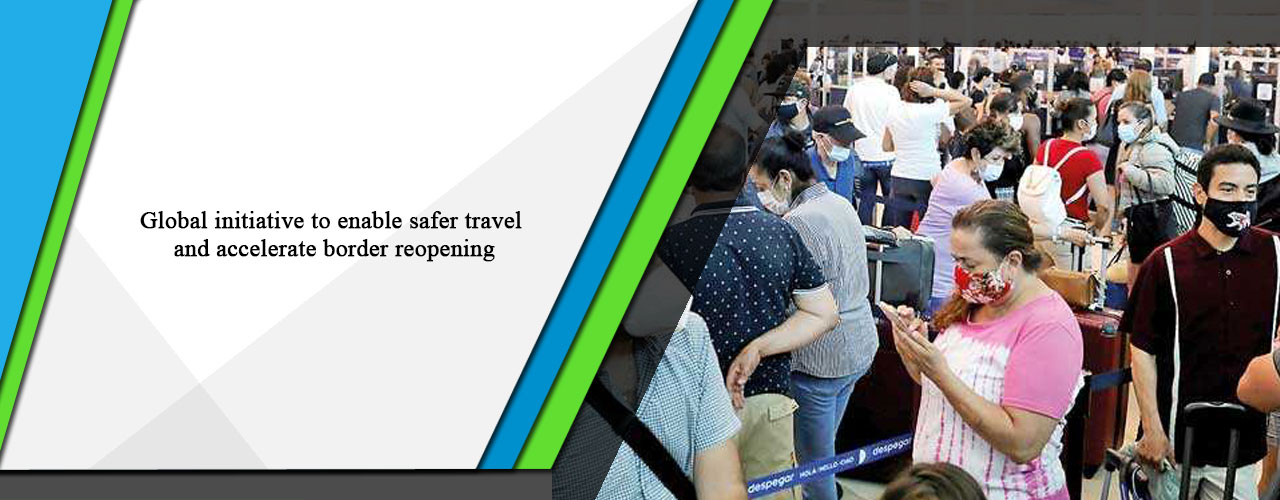Global initiative to enable safer travel and accelerate border reopening
The Commons Project Foundation and the World Economic Forum have announced international trials starting this week for CommonPass, a digital health pass for travellers to securely document their certified COVID-19 test status while keeping their health data private, according to Sri Lanka’s Daily FT newspaper.
CommonPass is built on the CommonPass Framework that establishes standard methods for lab results and vaccination records to be certified and enables governments to set and verify their own health criteria for travelers, the local news report stated, adding that the purpose of CommonPass and the CommonPass Framework is to enable safer airline and cross border travel by giving both travellers and governments confidence in each traveller’s verified COVID-19 status.
At present, COVID-19 test results for travel are frequently shared on printed paper – or photos of the paper – from unknown labs, often written in languages foreign to those inspecting them. There is no standard format or certification system.
“Travel and tourism has been down across the board due to the COVID pandemic.” Diane Sabatino, Deputy Executive Director, Office of Field Operations, US Customs and Border Protection has been quoted as saying in the news report. “CBP wants to be part of the solution to build confidence in air travel, and we are glad to help the aviation industry and our federal partners stand up a pilot like CommonPass.”
Cathay Pacific Airways and United Airlines are to trial the system in October with select volunteers on flights between London, New York, Hong Kong and Singapore, with government authorities observing. Deployments are planned with additional airlines and routes across Asia, Africa, the Americas, Europe and the Middle East in quick succession.
To use CommonPass, travellers take a COVID-19 test at a certified lab and upload the results to their mobile phone. They then complete any additional health screening questionnaires required by the destination country.
With test results and questionnaire complete, CommonPass confirms a traveller’s compliance with the destination country entry requirements and generates a QR code. That code can be scanned by airline staff and border officials. A QR code can be printed for users without mobile devices.
CommonPass adheres to tight privacy principles and is designed to protect personal data in compliance with relevant privacy regulations, including GDPR.
For governments, CommonPass and the CommonPass Framework provide a more reliable means of assessing the health status of incoming travellers and gives them the flexibility to adapt their entry requirements as the pandemic evolves, including whether and what type of lab tests or vaccinations to require.
“Without the ability to trust COVID-19 tests – and eventually vaccine records – across international borders, many countries will feel compelled to retain full travel bans and mandatory quarantines for as long as the pandemic persists,” Dr. Bradley Perkins, Chief Medical Officer of The Commons Project and former Chief Strategy and Innovation Officer at the US Centers for Disease Control and Prevention (CDC) has said. “With trusted individual health data, countries can implement more nuanced health screening requirements for entry.”
OSL take:
The global initiative to enable safe travel would help restart Sri Lanka’s tourism industry that has been on a standstill since the global Covid 19 pandemic. Sri Lanka’s tourism industry was one of the fastest growing economic sectors in the country until the pandemic obstructed travel between countries. However, Sri Lanka’s tourism industry is looking at commencing tourism through the concept of travel bubbles. The Chinese government has already said Chinese tourists are eager to visit Sri Lanka as tourists. Sri Lanka has been listed as a must visit destination by several leading global travel publications and has been awarded the safe And hygienic destination. All these indicate the definite return to normalcy of Sri Lanka’s tourism industry and an expansion of business/investment opportunities in the industry.
| Article Code : | VBS/AT/20102020/Z_1 |

